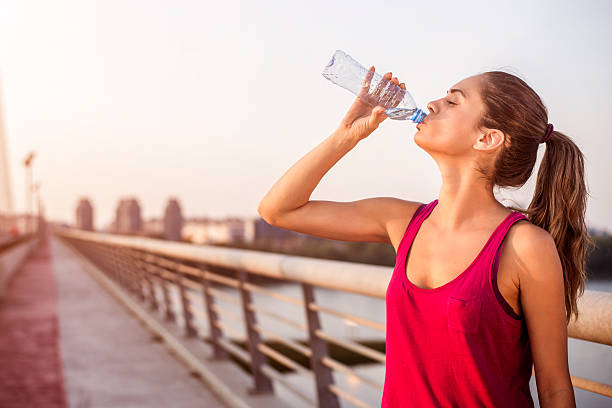It’s important for everyone to drink enough water each day. For those who regularly do high-intensity workouts in their local CrossFit locations (or just other gyms, for that matter), it’s even more crucial.
The exact amount of water that people need to drink each day depends on the individual, however. The factors to consider include your exertion levels, along with the humidity and temperature of your location.
Most of the time, you can gauge if you’re properly hydrated by checking your urine color. Properly hydrated persons generally have pale yellow urine (like to color of wheat). But if you’re not drinking enough, it will be darker and also smellier.
You’ll also urinate less frequently if you’re not properly hydrated. On average, a person usually urinates maybe 6 to 8 times a day, though 4 to 10 times a day is within normal parameters. If you’re urinating more often than that, it’s maybe because you’re drinking too much water, caffeine, or even beer during that day.
Here are some tips to help make sure you’re hydrating properly:
Plan for Hydration (and Bring Your Water Bottle Along)
Don’t forget to bring your water bottle with you whether you’re going to the gym or jogging outdoors. Don’t rely on water fountains, even if your gym has them. Most of the time, you’ll just get dehydrated, and guzzling water after the workout may just be too late.
So, you can carry a light backpack or a fanny pack for your water bottle. Or you can go with a handheld water bottle, if you’re not really using your hands during the exercise.
Drink Enough Fluids
How much water is enough? For most people, it’s good to drink maybe 17 to 20 ounces of water about 2 hours before the workout, and then another 8 ounces perhaps half an hour before the workout.
Then drink 8 ounces of water every 10 or 15 minutes while you’re working out. After the workout, drink 12 to 24 ounces of water.
Basically, you should drink more water the more you perspired during your workout. Every half-hour of exercise can lead to about half a liter of perspiration, at least on average. But some may lose up to 3 to 4 liters of sweat for each strenuous hour.
Remember Your Lost Electrolytes
While sweat is made up mainly of water, you’re also losing electrolytes like calcium, magnesium, potassium, chloride, and sodium. Sodium loss is the main problem here, so you need to replenish with some salt afterwards.
These minerals are important, as they do a lot of crucial stuff for your health. They help in matters such as water distribution in the body, waste removal, and nutrient absorption.
One of the advantages of sports drinks over plain water is that they can also replenish your electrolyte level. but you have to choose the right sports drink. It should contain sodium and carbohydrates. It’s best if you check out the label to see if it contains high enough amounts of the minerals your body loss when you exercise and sweat.
You may want to avoid drinks such as Monster and Red Bull, which may contain high amounts of sugar and caffeine. That can boost your blood pressure, and make you feel restless and irritable. In fact, they might even increase the risk of dehydration.
Don’t forget your magnesium levels as well. If you’re getting a sports drink with rather low levels of magnesium, you can add some magnesium powder (readily available at the drugstore) to your sports drink or water. Magnesium can boost exercise performance, and also help reduce the risk of leg cramps.
Just don’t go over 350mg of magnesium for the day. Too much magnesium can lead to abdominal cramps, nausea, and diarrhea. Magnesium may also interact with some medications, so talk with your doctor first if you’re taking medication and you’re considering magnesium supplements.
Final Words
When you’re dehydrated, everything in the body is affected. These include the functions of your cells and muscles, and even your cognitive function. You may end up getting tired much faster, and you may even feel more easily discouraged.
With proper hydration, the blood flow is enhanced in your body, and your body cools more efficiently. You’re basically able to improve your workout performance with proper hydration.
